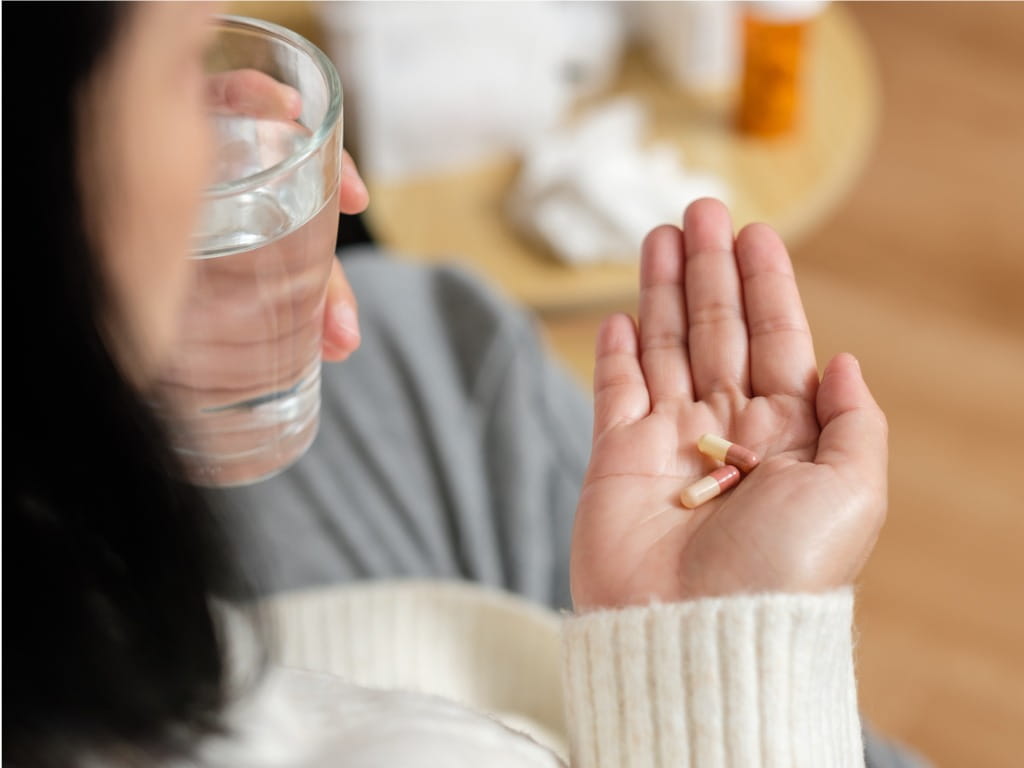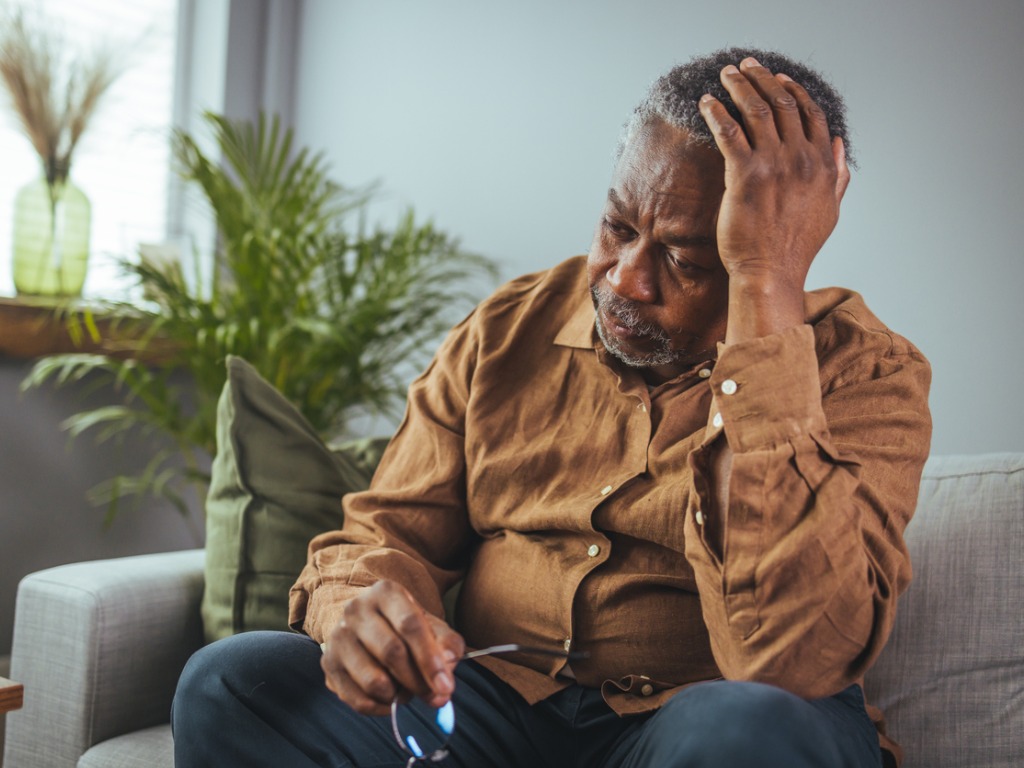Lexapro, an SSRI Antidepressant

The Bottom Line
Lexapro is the brand name for escitalopram, an SSRI antidepressant used to treat major depressive disorder and generalized anxiety disorder. Escitalopram is associated with side effects including sleep disturbances, fatigue, and nausea. Like many other antidepressants, escitalopram may require several weeks to months of use to provide full benefits.

What is Lexapro (escitalopram)?
The generic name for Lexapro is escitalopram. This drug belongs to a category of medications called SSRIs (Selective Serotonin Reuptake Inhibitors). The SSRI class of drugs work by increasing the amount of serotonin within the brain. SSRIs, including escitalopram, are used as acute and maintenance treatment for major depressive disorder and for acute treatment of generalized anxiety disorder. Escitalopram is very similar to citalopram, another SSRI drug. Some studies suggest that escitalopram may be faster and more effective in relieving symptoms than citalopram.
What are the common side effects of Lexapro (escitalopram)?
Common side effects of Lexapro are insomnia, sexual dysfunction (including decreased libido, anorgasmia (inability to achieve an orgasm), and male ejaculatory delay), nausea, increased sweating, fatigue, and somnolence.
Does Lexapro cause weight gain?
Weight gain is often reported as a side effect of treatment with antidepressants, including Lexapro (escitalopram). In one study, adults who took escitalopram for depression experienced minimal change in weight during treatment, with an average weight gain of 0.14 kg (one-third of a pound)) over a 12-week course of treatment.
Does Lexapro cause sexual side effects?
Escitalopram, along with other SSRI drugs, can cause sexual side effects, including a decrease in the desire to have sex, not being fully satisfied after having sex, and difficulty achieving orgasm. In one study, more than 40% of patients treated with SSRIs reported sexual side effects.
Can Lexapro cause anxiety?
Lexapro generally does not cause anxiety, but instead it is used for the treatment of generalized anxiety disorder. a disorder characterized by excessive anxiety and worry that is persistent for more than 6 months.
How long does Lexapro take to work?
The clinical effects of Lexapro, including improvements in symptoms of depression and anxiety, are often not immediately noticeable for many people. While some beneficial effects may be observed within 1-2 weeks of treatment, it might take a month or more for a full clinical response to occur.
Can I take Lexapro with alcohol?
Lexapro may cause unwanted side effects when it is taken along with alcohol. Similar to Lexapro (escitalopram), alcohol may also cause changes in serotonin levels within the body, and this can potentially lead to a dangerous condition called “serotonin syndrome”. In one case, an individual developed serotonin syndrome after drinking a can of beer while on escitalopram and other medications. His symptoms included agitation, tremors, and disorientation.
What is the best time to take Lexapro for anxiety?
Lexapro is typically taken once daily, morning or evening, with or without food.
What to expect when increasing Lexapro dosage
A doctor may increase your dosage of escitalopram to make sure you is getting the most out of the medication to support mental health. Dose increases may increase the risks of side effects from escitalopram. Nausea, sleepiness, weakness, dizziness, feeling anxious, trouble sleeping, sexual problems, sweating, shaking, not feeling hungry, dry mouth, and constipation may occur after a dose increase. Rarely, suicidal thoughts, unusual changes in behavior, or serotonin syndrome may occur after dose increases.
What are some Lexapro withdrawal symptoms?
Lexapro withdrawal symptoms can include somatic symptoms (for example, dizziness, chills, lightheadedness, and vertigo) and psychological symptoms (for example, anxiety, agitation, and confusion). These symptoms typically occur after abrupt discontinuation of the medication, but may sometimes occur after gradual drug tapering. People who take Lexapro for a long time, as well as those who are on high doses of the drug, may be more likely to experience withdrawal symptoms. It is important to taper off the medication (decrease the dose slowly) to reduce the risk of withdrawal symptoms.
What should I do if someone takes Lexapro by accident, or takes too much Lexapro?
If you take too much Lexapro, or experience adverse or unexpected symptoms after taking Lexapro, get guidance from Poison Control online at poison.org or by phone at 1-800-222-1222. Both options are free, confidential, and available 24 hours a day.
Sajni V Patel
Fourth Year Pharmacy Student
Poisoned?
Call 1-800-222-1222 or
Prevention Tips
- Store all medications well out of reach of children.
- Store medications in their original containers.
- Talk to your doctor about the best way to discontinue use of antidepressants.
This Really Happened
Case 1: A two-year-old boy got into a weekly pill box and was found with one escitalopram 10 mg tablet in his mouth. No other medications were missing. He vomited part of the tablet. The child had insomnia that night, but his symptoms resolved by the following day.
Case 2: A 20-year-old woman accidentally ingested four Lexapro 20 mg tablets that her mother had kept in an acetaminophen container. She developed nausea and presented to an Emergency Department (ED) due to her symptoms. She was treated in the ED with anti-nausea medications, and was discharged home after no additional symptoms developed during a short period of observation.
For More Information
Escitalopram (Lexapro) (National Alliance on Mental Illness)References
Rao N. The clinical pharmacokinetics of escitalopram. Clin Pharmacokinet. 2007;46(4):281-90.
Prescribing Information. Allergan USA, Inc. Irvine, California. Revised January 2017. Lexapro
Poisoned?
Call 1-800-222-1222 or
Prevention Tips
- Store all medications well out of reach of children.
- Store medications in their original containers.
- Talk to your doctor about the best way to discontinue use of antidepressants.
This Really Happened
Case 1: A two-year-old boy got into a weekly pill box and was found with one escitalopram 10 mg tablet in his mouth. No other medications were missing. He vomited part of the tablet. The child had insomnia that night, but his symptoms resolved by the following day.
Case 2: A 20-year-old woman accidentally ingested four Lexapro 20 mg tablets that her mother had kept in an acetaminophen container. She developed nausea and presented to an Emergency Department (ED) due to her symptoms. She was treated in the ED with anti-nausea medications, and was discharged home after no additional symptoms developed during a short period of observation.
